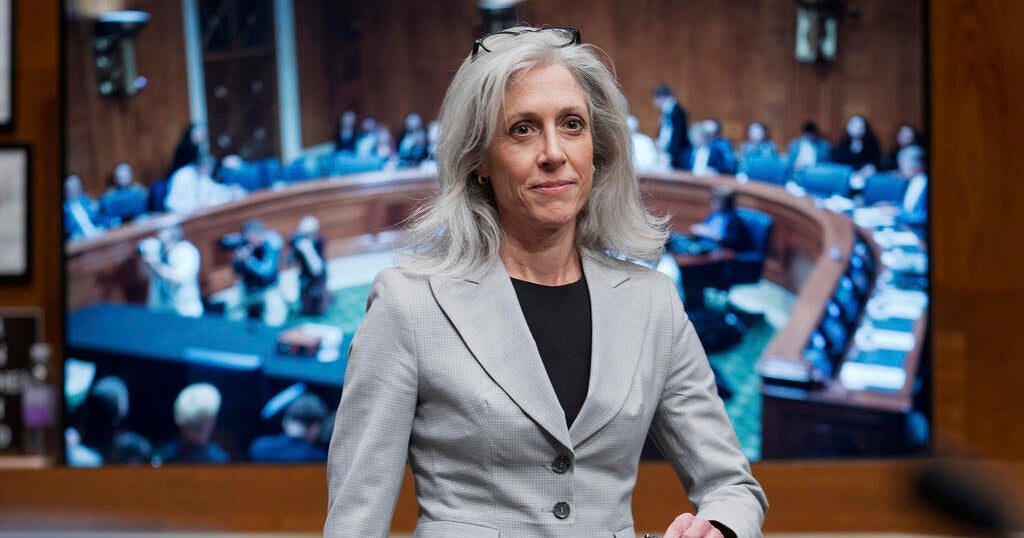In a surprising turn of events less than a month following her Senate confirmation, Susan Monarez, the newly appointed director of the U.S. Centers for Disease Control and Prevention (CDC), has been forcefully ousted from her position. This decision was confirmed by the White House, amidst a whirlwind of controversy and legal disputes regarding the legitimacy of her removal.
The Department of Health and Human Services disclosed via a post on X (formerly Twitter) that Monarez no longer held her position as the head of the CDC. This announcement came on the heels of multiple resignations by top CDC officials throughout the same day. These officials cited various reasons, ranging from disagreements with the current administration’s handling of vaccine policies, to significant budget cuts aimed at the agency, describing such changes as the “weaponization of public health.”
As confusion thickened over the reasons behind Monarez’s sudden departure, her legal representatives opposed the views presented by the administration. Prominent Washington-based attorney Mark Zaid highlighted in his statement that Monarez had neither stepped down willingly nor had she received any formal notice from the White House regarding her dismissal. According to Zaid, Monarez had been “targeted for refusing to endorse unscientific and reckless directives and for her stand against the dismissal of dedicated public health professionals.”
Responding to Zaid’s claims, White House spokesperson Kush Desai suggested that Monarez had been removed from her office because of her supposed intentions to resign that she communicated to the leadership of HHS. Desai further criticized Monarez for not being in alignment with President Trump’s health-focused agenda to “Make America Healthy Again.”
The legal tangle intensified when Zaid, alongside attorney Abbe Lowell, announced that Monarez was informed of her termination by a personnel officer from the White House on a Wednesday evening, a move they deemed “legally insufficient.” They contended that since Monarez was a presidential appointee, only President Trump himself possessed the authority to fire her, thereby maintaining that she should legally continue to serve as the CDC director.
Further details emerged revealing tension and friction in the days leading up to this event. Monarez had reportedly canceled an agency-wide meeting due to a sudden summon to Washington, D.C., suggesting a possibly contentious discussion with higher-ups that might have paved the way for the unraveling scenario.
This period of upheaval saw at least three other senior CDC leaders stepping down. Daniel Jernigan, head of the CDC’s National Center for Emerging and Zoonotic Infectious Diseases, was among those who resigned, citing troubling developments within the department as his reason for departure. Debra Houry, the Chief Medical Officer, and Demetre Daskalakis, head of the National Center for Immunization and Respiratory Diseases, followed suit. In their resignation notes, both emphasized concerns about misinformation, undermining of scientific integrity, and political interference impacting public health policies. Daskalakis explicitly criticized changes in vaccine recommendations and signaled a forced erosion of public trust in vaccines as a factor in his decision to resign.
The political response to these developments has been equally polarized. Senator Patty Murray, a Democrat on the Senate Health Committee, vehemently called for the dismissal of Secretary of Health and Human Services Robert F. Kennedy Jr., labeling him as “a dangerous man” influenced by conspiracy theories. On the other side, Republican Senator Bill Cassidy mentioned that these departures warranted further oversight, whereas Independent Senator Bernie Sanders called for a formal hearing with Kennedy to discuss these issues.
Highlighted as a chapter in the CDC’s darker times were also incidents prior to these resignations, including a violent episode outside the CDC headquarters and controversial decisions made by Kennedy, including the abrupt ending of an independent panel that advised on vaccines, and halting contracts for essential vaccine research.
This internal strife and the surrounding controversy highlight the deep divisions and challenges within the U.S. health system’s leadership, reflecting broader national debates over public health management, vaccine policy, and the politicization of health science. The implications of this upheaval are profound, not only for the United States but also for global health governance, given CDC’s pivotal role in international health issues. As the legal battles loom and public criticism intensifies, what lies ahead for the CDC remains uncertain, with the world watching closely.









